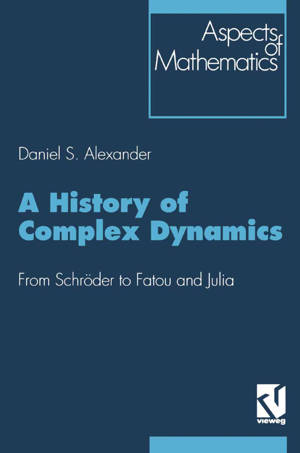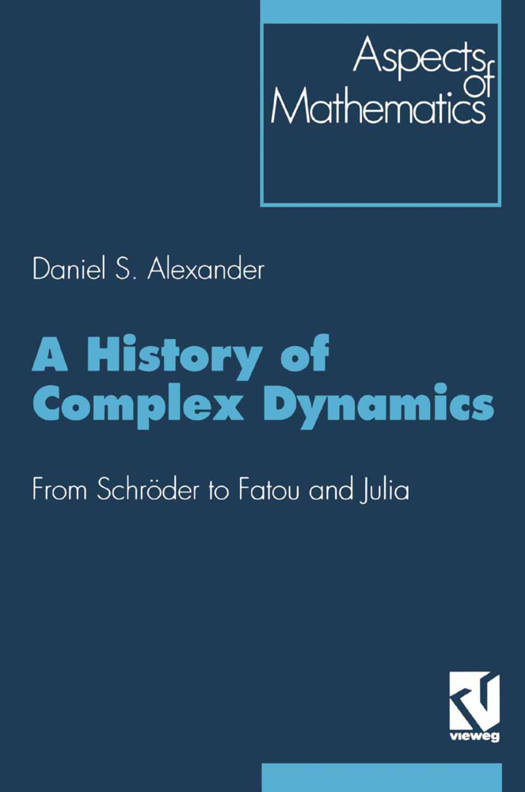
- Retrait gratuit dans votre magasin Club
- 7.000.000 titres dans notre catalogue
- Payer en toute sécurité
- Toujours un magasin près de chez vous
- Retrait gratuit dans votre magasin Club
- 7.000.0000 titres dans notre catalogue
- Payer en toute sécurité
- Toujours un magasin près de chez vous
73,95 €
+ 147 points
Description
In late 1917 Pierre Fatou and Gaston Julia each announced several results regarding the iteration ofrational functions of a single complex variable in the Comptes rendus of the French Academy of Sciences. These brief notes were the tip of an iceberg. In 1918 Julia published a long and fascinating treatise on the subject, which was followed in 1919 by an equally remarkable study, the first instalIment of a three part memoir by Fatou. Together these works form the bedrock of the contemporary study of complex dynamics. This book had its genesis in a question put to me by Paul Blanchard. Why did Fatou and Julia decide to study iteration? As it turns out there is a very simple answer. In 1915 the French Academy of Sciences announced that it would award its 1918 Grand Prix des Sciences mathematiques for the study of iteration. However, like many simple answers, this one doesn't get at the whole truth, and, in fact, leaves us with another equally interesting question. Why did the Academy offer such a prize? This study attempts to answer that last question, and the answer I found was not the obvious one that came to mind, namely, that the Academy's interest in iteration was prompted by Henri Poincare's use of iteration in his studies of celestial mechanics.
Spécifications
Parties prenantes
- Auteur(s) :
- Editeur:
Contenu
- Nombre de pages :
- 166
- Langue:
- Anglais
- Collection :
- Tome:
- n° 24
Caractéristiques
- EAN:
- 9783663091998
- Date de parution :
- 20-11-13
- Format:
- Livre broché
- Format numérique:
- Trade paperback (VS)
- Dimensions :
- 152 mm x 229 mm
- Poids :
- 244 g

Les avis
Nous publions uniquement les avis qui respectent les conditions requises. Consultez nos conditions pour les avis.






